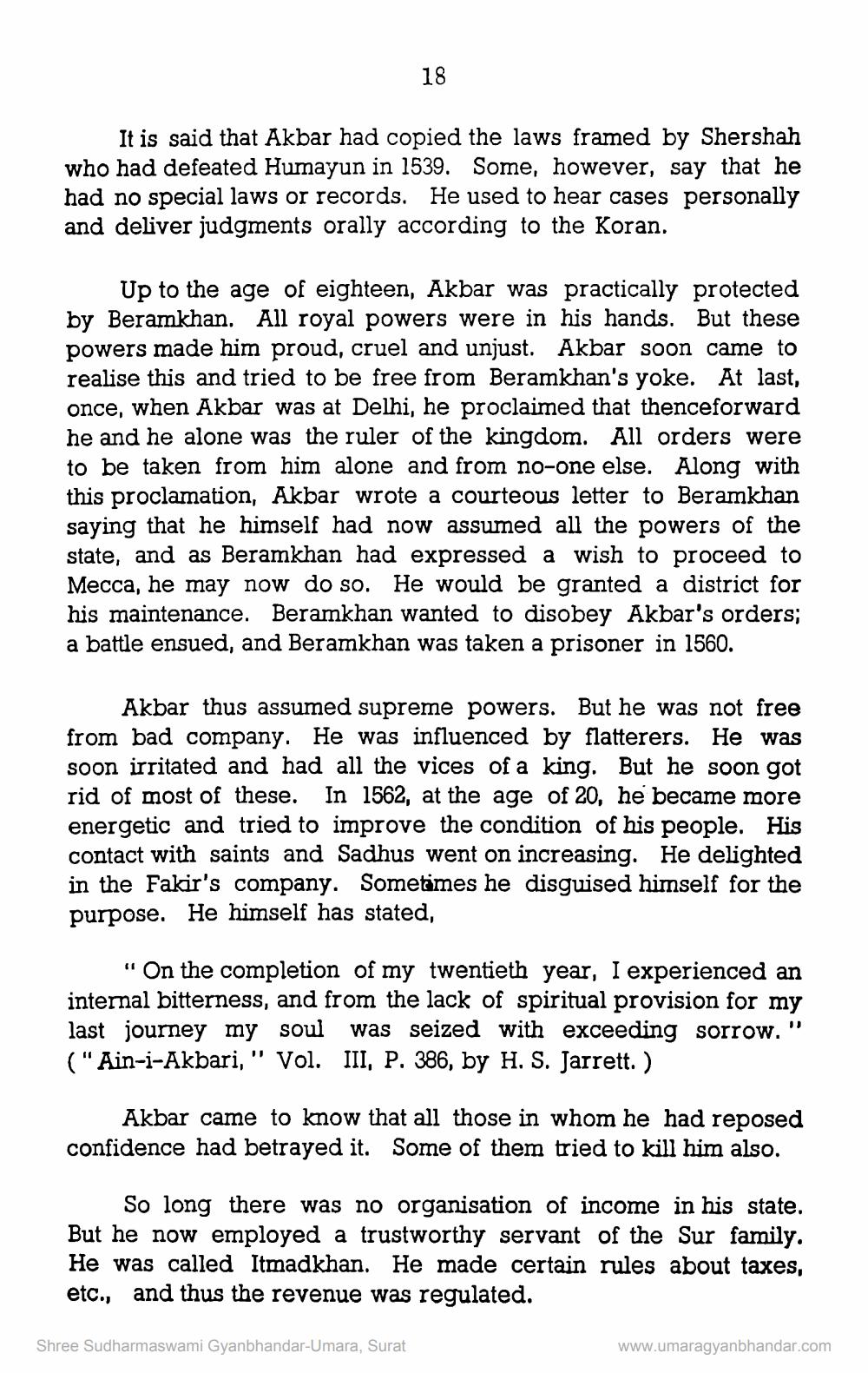________________
18
It is said that Akbar had copied the laws framed by Shershah who had defeated Humayun in 1539. Some, however, say that he had no special laws or records. He used to hear cases personally and deliver judgments orally according to the Koran.
Up to the age of eighteen, Akbar was practically protected by Beramkhan. All royal powers were in his hands. But these powers made him proud, cruel and unjust. Akbar soon came to realise this and tried to be free from Beramkhan's yoke. At last, once, when Akbar was at Delhi, he proclaimed that thenceforward he and he alone was the ruler of the kingdom. All orders were to be taken from him alone and from no-one else. Along with this proclamation, Akbar wrote a courteous letter to Beramkhan saying that he himself had now assumed all the powers of the state, and as Beramkhan had expressed a wish to proceed to Mecca, he may now do so. He would be granted a district for his maintenance. Beramkhan wanted to disobey Akbar's orders; a battle ensued, and Beramkhan was taken a prisoner in 1560.
Akbar thus assumed supreme powers. But he was not free from bad company. He was influenced by flatterers. He was soon irritated and had all the vices of a king. But he soon got rid of most of these. In 1562, at the age of 20, he became more energetic and tried to improve the condition of his people. His contact with saints and Sadhus went on increasing. He delighted in the Fakir's company. Sometimes he disguised himself for the purpose. He himself has stated,
"On the completion of my twentieth year, I experienced an internal bitterness, and from the lack of spiritual provision for my last journey my soul was seized with exceeding sorrow." ("Ain-i-Akbari, " Vol. III, P. 386, by H. S. Jarrett. )
Akbar came to know that all those in whom he had reposed confidence had betrayed it. Some of them tried to kill him also.
So long there was no organisation of income in his state. But he now employed a trustworthy servant of the Sur family. He was called Itmadkhan. He made certain rules about taxes, etc., and thus the revenue was regulated.
Shree Sudharmaswami Gyanbhandar-Umara, Surat
www.umaragyanbhandar.com




